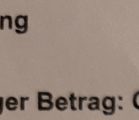
What else are they hiding? Trust in company leadership depends on timely and correct disclosure of Material information.
Disclosure is the act of releasing all relevant information pertaining to a company that may influence an investment decision. Also, to be listed on major U.S. stock exchanges, companies must follow all of the Securities and Exchange Commission's (SEC) disclosure requirements and regulations. To make investing as fair as possible for everyone, companies must disclose both good and bad information.
The need for specific disclosure requirements is necessary because selective disclosures put investors and company stakeholders at a disadvantage. For example, Insiders would use material nonpublic information for their own gain at the expense of the general investing public. Clearly outlined disclosure requirements ensure that information is adequately disseminated by a company, so everyone is on an even playing field.
Materiality determination should always be in consideration of the point of view of an average, reasonable investor.
In the financial news there are regular revelations of a company tardily disclosing, or even attempting to cover up something important (i.e. Material). What is material information? It has been defined as “a substantial likelihood that the disclosure of the omitted fact would have been viewed by the reasonable investor as having significantly altered the ‘total mix’ of information made available.” Is a reasonable investor substantially likely to consider the information in question important to their investment decision? Would they view it as significantly altering the total mix of information available? If the answer to either of these questions is yes, then the information is most likely material.
The Swissair grounding would be a bad example generally as most of the Board were unaware of materially important issues and many without airline experience may not have even understood the content anyway. Banks may have been a bit tardy in releasing information of leaked customer records or data hacks. Any whistleblower information is an accusation against a company for the lack of material disclosure.
The problem with the current disclosure practices and the interpretation and definition of materiality is that it is increasingly disconnected from the desires of investors and the marketplace. Companies too often play fast and loose with this cornerstone of governance, with the end goal to avoid disclosure. There is a bad habit of slicing and dicing and disclosing some small less important pieces of the mosaic of misbehavior rather than the essence. Perhaps this is in the hope that they can “cover up” the misbehavior / miss-step / insider trade / criminal behavior / product failure / etc.
The lack though of an objective codified legal standard allows lawyers to argue that something is not material because “they didn’t think” it was certain or important enough to affect the stock price of the company significantly. The definition has become legally constrained, fraught with multiple interpretations and views. There is a need for renewed guidance, if not new legislation.
The definition of materiality would be simpler and clearer if its test was what is important to the investor, instead of a calculation of whether the mix of information has been altered.
For investors’ sake, companies need to view materiality from a broader perspective. It is not just about whether a Regulatory Authority could bring an action, but what investors will find important — in other words, will it move the market price?
Companies need to understand that information disclosure is not just a legal game. Failure to disclose important information on a timely basis can harm a company’s reputation.
A failure to enact specific guidelines by Regulatory Authorities may lead to increasing distrust of the markets by a wary investing public. There cannot be honest markets without honest publicity. Manipulation and dishonest practices of the market place thrive upon mystery and secrecy.
Company management should remember back to being a child when they or a friend did something really bad, and then tried to concoct a web of lies to cover up for the bad deed. And in the end when the story unraveled, the punishment for the cover up was a quantum more serious than if one had just owned up in the first place?
We should hold this thought!



